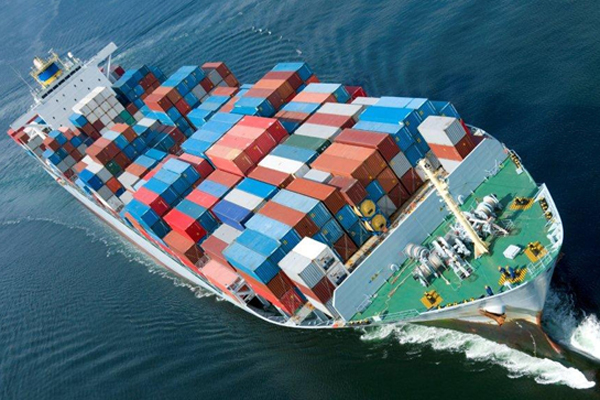
Libya food imports fall as turmoil disrupts deliveries
LONDON, July 31, 2015
Imports of food, including wheat, are dropping sharply to Libya, which has the highest per capita bread consumption in the world, as foreign shippers run scared of making direct deliveries due to worsening turmoil.
The country is in chaos, with two governments fighting one another and armed groups roaming uncontrolled, among them Islamic State militants who have attacked oilfields.
There no signs of food shortages so far, but some prices are rising due to higher insurance costs or more expensive overland deliveries via neighbouring countries, sometimes stolen by gunmen posing as security officials at fake checkpoints.
Warplanes belonging to the internationally recognised government based in the east have bombed several commercial ports held by rivals and also attacked ships it says were servicing them, although the ship owners dispute this.
The risks are now so high ship owners should contact their insurers before each trip, said Jonathan Moss, head of transport with law firm DWF, who acts for insurers.
"Security advice to ships calling at ports in Libya may change from day to day," he said. "Vessels transiting through the Mediterranean are advised to remain clear of Libyan waters."
The North African country, which is mainly desert, exports oil but depends on imports of everything from wheat to milk to feed its six million people.
Bread is so politically sensitive officials have not dared abolish subsidies from the time of ousted ruler Muammar Gaddafi. A loaf costs just $0.02. In February, they said they had two to three months reserves of wheat and cut supplies to bakeries.
Vegetables and other fresh food have become difficult to get in the remote south as fighting by rival tribes has disrupted the road to Tripoli, but supermarkets in the capital and other main cities remain well stocked.
Food prices have gone up however, especially in the east where fighting has closed the main Benghazi port for six months. The small Tobruk port remains open but cargoes bound for Benghazi tend to avoid the main coastal road passing Derna, a jihadi hot spot lying halfway between the two cities.
LATE PAYMENTS
Husni Bey, chairman of the HB Group, one of the biggest importers of food, consumer articles and commodities, said wheat imports had fallen by 30 per cent this year and port volumes were seen down by 50 per cent as foreign banks and shippers were increasingly reluctant to deal with Libya.
"We do have a crisis," he said. "Few banks are willing to confirm Libyan bank letter of credits due to late payments."
He said a state fund tasked with funding wheat and other subsidised food items was late paying millers, which were sitting on unpaid bills worth one billion Libyan dinars due to a public finance crisis.
Libya's annual wheat imports should average between 1.7 million to 2.1 million tonnes and it is not clear whether they will meet their needs at the moment.
Port data on Reuters Eikon showed imports of wheat into Libya slid to 37,898 tonnes in June, down from 88,597 tonnes in May and 144,556 tonnes in February - which was the highest month-on-month import figure this year. That compared with 89,747 tonnes in June last year.
Deliveries have also slowed of white sugar, of which Libya has consumed between 230,000 and 250,000 tonnes in Libya in recent years.
Fighting on various fronts has reduced oil output to around 400,000 barrels per day, a quarter of what Libya used to pump before an uprising in 2011 toppled Muammar Gaddafi and sent the country into crisis.
WHO'S IN CHARGE?
Suppliers are now increasingly sourcing goods from Libya's neighbours Egypt and Tunisia but risk hijackings as they haul the cargoes by road, a Middle East-based commodity trading source said. Such a process is also slow going.
"That means will we see more imports into those countries, adding to the premium Libya has to pay," the source said.
Some food shipments bound for the east are routed via the western city of Misrata, but the already dangerous coastal road might become off limits if Islamic State takes control of a junction linking it with a road to the south, as predicted by some analysts.
There is little reliable trade data in a country which not only has two governments, but two parliaments, armies, state oil firms and central bank governors, following the official government's loss of control of the capital Tripoli a year ago.
But Misrata port, where berths were busy until fighting between rival factions in July 2014, showed only three dockings from July 30 until August 7, according to the website of the port free trade zone. Moss said anyone planning to call there should contact port authorities and the official government as well as local shipping agents.
Arranging payments has become more difficult due to a shortage of dollars following the loss of oil revenues, Libya's only source for dollars and the budget.
That has forced some import firms to go to the black market, where the dollar rate has risen to around 2.20 compared with the official rate of 1.38, residents say. Commercial banks are also struggling to provide dollars.
The conflict between two governments vying for legitimacy has added to foreign suppliers' worries. The official government is confined to a rump state in the east but the state wheat fund is run by a rival administration.
"It is hard to do business as the banks do not know which government will take responsibility for payments," a German trade source said.
"There are regular inquiries for imports of grain but you cannot say who is in charge of the country so who to complain if you are not paid." - Reuters







